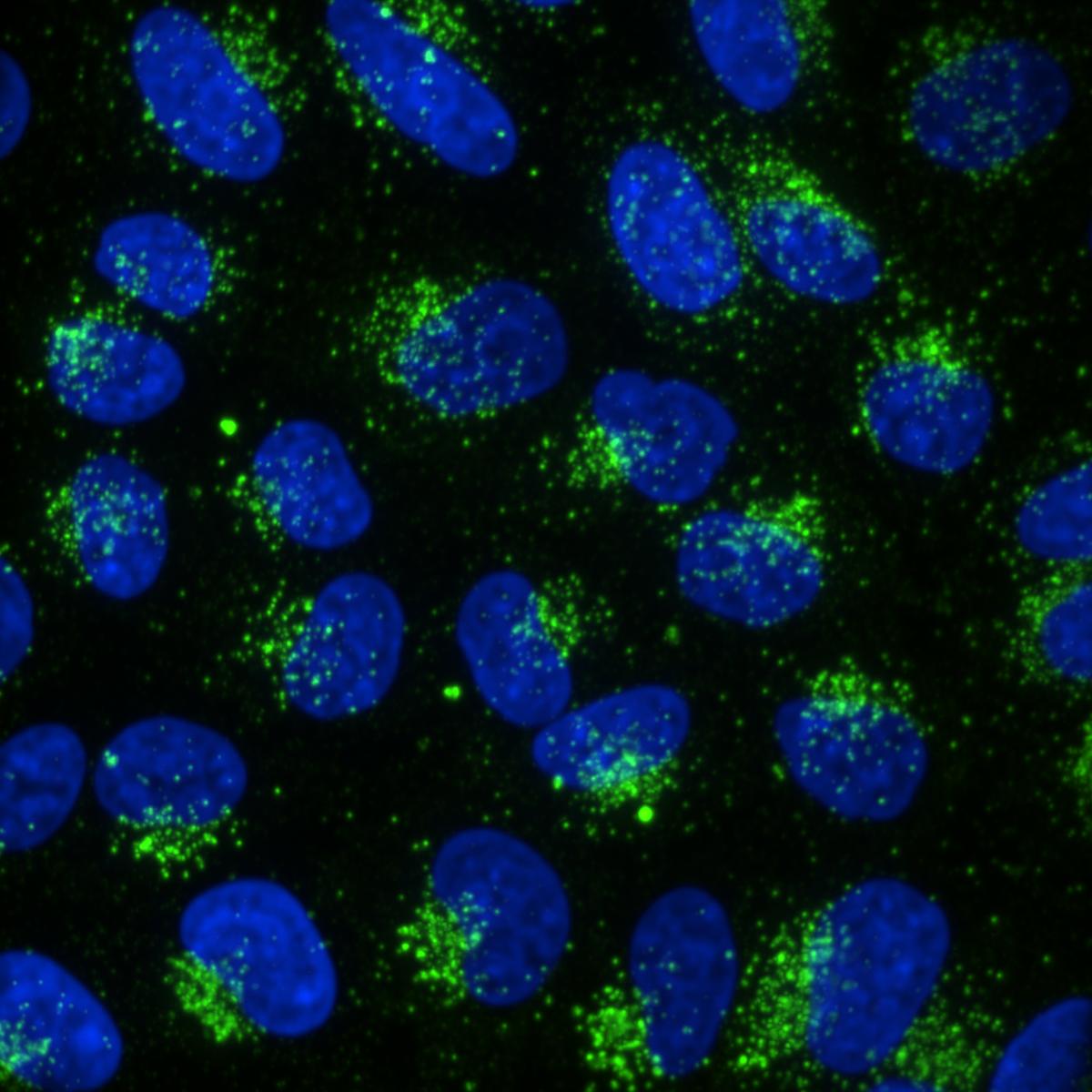| Reactivity | Hu, Mu, RtSpecies Glossary |
| Applications | WB, Flow, ICC/IF, IHC, IP, CyTOF-ready |
| Clone | MEM-259 |
| Clonality | Monoclonal |
| Host | Mouse |
| Conjugate | Unconjugated |
| Format | BSA Free |
| Concentration | 1.0 mg/ml |
| Immunogen | HPB-ALL T cell line |
| Marker | Late Endosomes Marker |
| Specificity | The antibody MEM-259 reacts with an extracellular/luminal epitope of CD63 (LAMP-3), a 40-60 kDa tetraspan glycoprotein expressed by granulocytes, platelets, T-cells, monocytes/macrophages and endothelial cells. Cell surface exposition of CD63 is usually activation-dependent. |
| Isotype | IgG1 |
| Clonality | Monoclonal |
| Host | Mouse |
| Gene | CD63 |
| Purity | Protein A purified |
| Innovator's Reward | Test in a species/application not listed above to receive a full credit towards a future purchase. |
| Dilutions |
|
||
| Application Notes | This antibody is CyTOF ready. WB reactivity reported in (PMID: 25034888). Clone MEM-259 has been used for extracellular vesicle flow cytometry |
||
| Theoretical MW | 60 kDa. Disclaimer note: The observed molecular weight of the protein may vary from the listed predicted molecular weight due to post translational modifications, post translation cleavages, relative charges, and other experimental factors. |
||
| Control |
|
||
| Reviewed Applications |
|
||
| Publications |
|
| Storage | Store at 4C. Do not freeze. |
| Buffer | PBS (pH 7.4) |
| Preservative | 0.09% Sodium Azide |
| Concentration | 1.0 mg/ml |
| Purity | Protein A purified |
| Images | Ratings | Applications | Species | Date | Details | ||||||||
|---|---|---|---|---|---|---|---|---|---|---|---|---|---|

Enlarge |
reviewed by:
Verified Customer |
IF | Human | 10/23/2019 |
Summary
|
Secondary Antibodies |
Isotype Controls |
Research Areas for CD63 Antibody (NB100-77913)Find related products by research area.
|
|
Glypican 3 as a biomarker for gastro-esophageal adenocarcinoma By Jamshed Arslan, Pharm. D., PhD. Gastroesophageal adenocarcinoma originates from the glandular epithelium of the esophagus, gastroesophageal junction and stomach. The incidence of gastroesophageal adenocarcinoma is ... Read full blog post. |
|
Tools for Isolation, Quantification and Analysis of Exosomes Exosomes are spherical to cup-shaped bilayered membrane enclosed nanosize vesicles (30-100 nm) which have the ability to shuttle active cargoes between cells. Johnstone et al. 1987 pioneered in documenting the generation of exosomes in differentiat... Read full blog post. |
|
CD63: is it pro-metastatic or anti-metastatic? CD63 is a type II membrane protein belonging to tetraspanin superfamily and it play key roles in the activation of several cellular signaling cascades along with acting as TIMP1 receptor. It is expressed by activated platelets, monocytes,... Read full blog post. |
The concentration calculator allows you to quickly calculate the volume, mass or concentration of your vial. Simply enter your mass, volume, or concentration values for your reagent and the calculator will determine the rest.